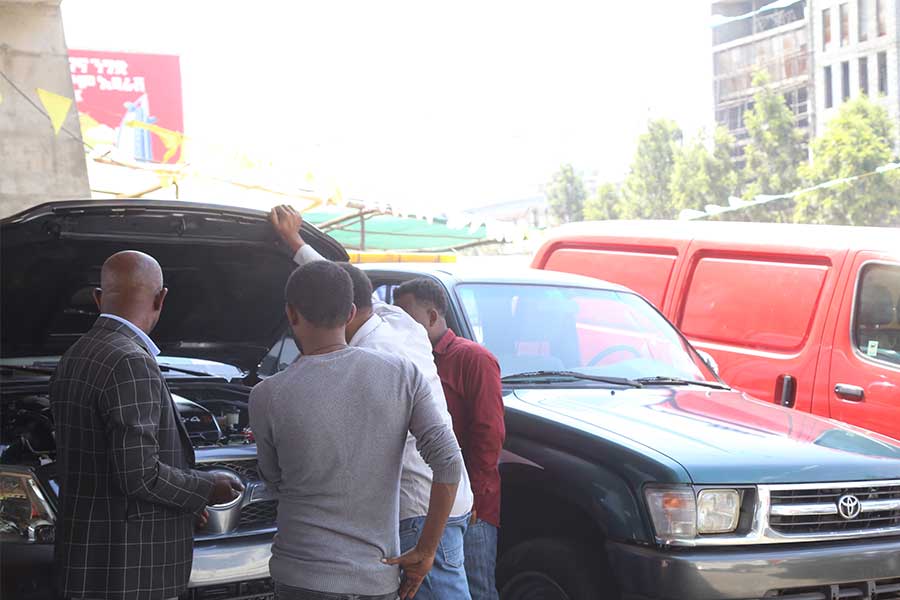
Agenda | Jan 05,2020
Sep 10 , 2023.
Earlier this Ethiopian fiscal year, the heralding of a peace deal became synonymous with the cessation of hostilities from brutal and bloody conflicts that have torn apart the northern part of the country, mainly the Tigray Region State. November ushered in a pivotal shift as the Federal Government and the TPLF found common ground, laying down the foundations for a ceasefire brokered partly due to the American intervention, in the diplomatic halls of Pretoria and later solidified in Nairobi.
The pact has stilled the cannons in Tigray, offering respite to a populace besieged by a two-year civil war. It was a closure of a chapter. Regrettably, the outgoing year marked the opening of another chapter, shifting the battleground to the neighbouring Amhara Regional State.
The conundrum of the past year has been nothing short of an enigma wrapped in a paradox: a country that yearned for tranquillity, yet remained trapped in the relentless grip of armed conflicts and economic turmoil.
Notwithstanding the momentous deals for cessation of hostilities in South Africa and the follow-up declaration in Kenya that appeared to herald a new dawn for Tigray, the country finds itself teetering on the precipice of a humanitarian crisis of enormous proportions, as nearly a quarter of its populace languishes in the throes of dire need. No less than 4.6 million have been internally displaced due to flood, drought and mainly violent conflicts.
A mosaic of armed conflicts seems unfurling across Ethiopia's diverse regions, with the Amhara region taking centre stage in the new cycle of violence, an unfortunate successor to the tragedy that befell Tigray.
In the labyrinthine politics, a seasoned observer may discern that the November deal, albeit a significant step, is merely a hiatus, a brief in a series of upheavals that have beleaguered the country. The much-needed political dialogue between Addis Abeba and Meqelle over the misalignment that led to war in the first place remains undone.
The Federal Prosecutor General Gideon Timothies (PhD) and National Security Advisor Redwan Hussien affixed their signatures to the historic agreement in Pretoria, counter-signed by Getachew Reda of the TPLF and Tsadkan Gebretensae (Lft. Gen.). It was a hard-fought respite facilitated by the diplomatic machinery of the United States, which proved instrumental in providing critical logistics and orchestrating the cessation of hostilities. It was a deal proven to be an important precursor in the collapse of the war alliance built post-November 2020.
But peace, it seems, remains a fleeting entity in the northern landscape. The scenes of conflict have merely shifted, leaving the populace of the Amhara Regional State to bear the brunt of a new wave of violence.
The difficulties of the times compelled the hand of Parliament to enact a six-month state of emergency decree, in response to a request for federal intervention by the erstwhile regional President, Yiliqal Kefale (PhD). The stormy clouds of conflict were hanging heavy over Bahir Dar, the seat of the regional administration, and other principal towns in the state, as the federal army grappled with insurgents in a complex and unfolding war.
The transition from a state of heightened conflict to a precarious peace in Tigray has indeed been marred by an escalation of violence in the Amhara region. The tendrils of conflict have managed to entwine themselves around other areas of the country, creeping into Oromia and the Benishangul-Gumuz regions, and spilling over into areas adjoining the Somali and Afar states as well as places bordering Gambella and Southern regional state, according to the Ethiopian Peace Observatory, a conflict monitoring initiative under Armed Conflict Location & Event Data Project (ACLED).
This intricate weave of conflicts, symptomatic of deeper societal and political fissures, has engendered a pervasive sense of insecurity, engulfing even those ensconced in regions far removed from the epicentres of violence.
However, the complexities of the Ethiopian dilemma are not confined to the realm of security alone. Indeed, the country grapples with an economy in the throes of an agonising contraction.
The macroeconomic milieu has been characterised by burgeoning deficits, a stifling forex crunch, and spiralling inflation, all conspiring to erode the purchasing power of the consumers. A discerning eye on the federal budget approved for the fiscal year 2024 reveals a worrying trend: a nominal increase of a meagre two per cent from last year, which, when juxtaposed against a forecasted consumer price index floating at over 30pc, paints a bleak picture of negative real growth eclipsing 20pc.
This contraction signifies a tectonic shift in economic paradigms for a country that witnessed a decade of burgeoning budgets. The state's role in galvanising the economy appears to be waning, with public expenditure in the budget plummeting by an alarming 11.2 percentage points relative to the GDP, compared to the 18.8pc a decade ago.
This shift seems to be heralding an era of diminished bureaucratic efficacy, hampered by the severe dearth of human capital in the public sector. The scarcity, coupled with a constrained budget, demands a critical evaluation of the role of the private sector, urging it to step up to fill the looming void.
As the country navigates these murky waters, the onus lies on the Prosperity Party (PP) and its leaders to steer the economy towards safer shores. However, the rhetoric surrounding economic reform appears to oscillate between a genuine intent to liberalise and a reluctance to relinquish the state’s stronghold on the economy's commanding heights.
While there have been commendable strides in the liberalisation of the telecom sector, heralded by the entrée of Safaricom Ethiopia into the market, broader economic reforms seem to have lost traction.
Policymakers, ostensibly championing a liberal economic approach, remain mired in restrictive mandates that undermine the sanctity of private property and impose undue constraints on the mobility of capital and labour. The elusive quest for optimal private capital allocation continues, hampered by a policy environment that seems to waffle on the principles of property rights and contractual integrity.
Indeed, the initiation of the Homegrown Economic Reform (HGER) 2.0 remains clouded in ambiguity, with policy wonks struggling to articulate the economic trajectory of the incumbent government with clarity and conviction. The shadow of the first HGER looms large, as its lacklustre implementation casts doubts on the effectiveness of its successor.
As the country grapples with the repercussions of a relentless cycle of conflicts, the focus shifts away from economic resurgence towards mitigating the humanitarian crises unfolding across the country. Ethiopia stands at this critical juncture, with its people pinning their hopes on the possibility of a year that ushers in peace and stability, fostering an environment conducive to economic growth and development.
The international community watches with bated breath as leaders of the Prosperity Party and their adversaries navigate the complex tapestry of politics. The imperative now is to forge a path of dialogue and negotiations for compromise and settlement, transcending the pervasive mentality that perceives every obstacle as a nail, requiring the relentless hammering of conflict and strife.
The year ahead presents an opportunity for Ethiopia to break free from the vicious cycle of conflict and economic turmoil, embracing a future that holds the promise of peace and progress. It can be a year of hope, where the aspirations of a beleaguered populace may yet find fruition in a reborn political community, rising from the ashes of its troubled past to forge a brighter and more inclusive future for its citizens.
PUBLISHED ON
Sep 10,2023 [ VOL
24 , NO
1219]

Agenda | Jan 05,2020

Commentaries | Apr 24,2021
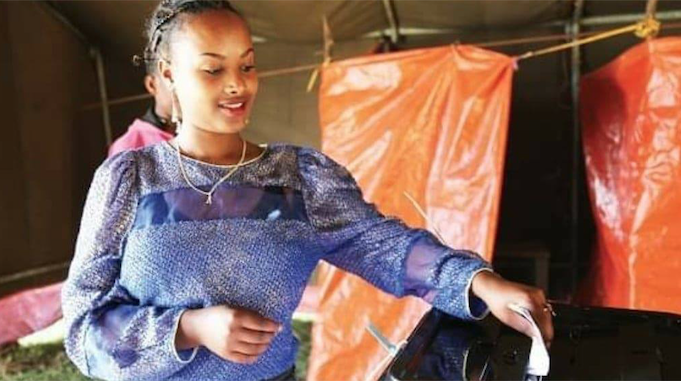
Fortune News | Nov 23,2019
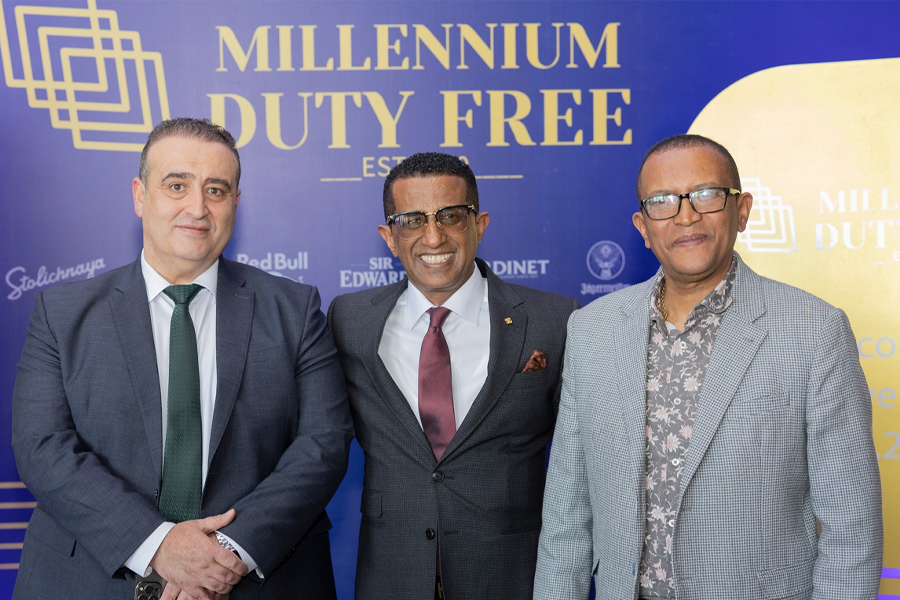
Radar | Oct 27,2024
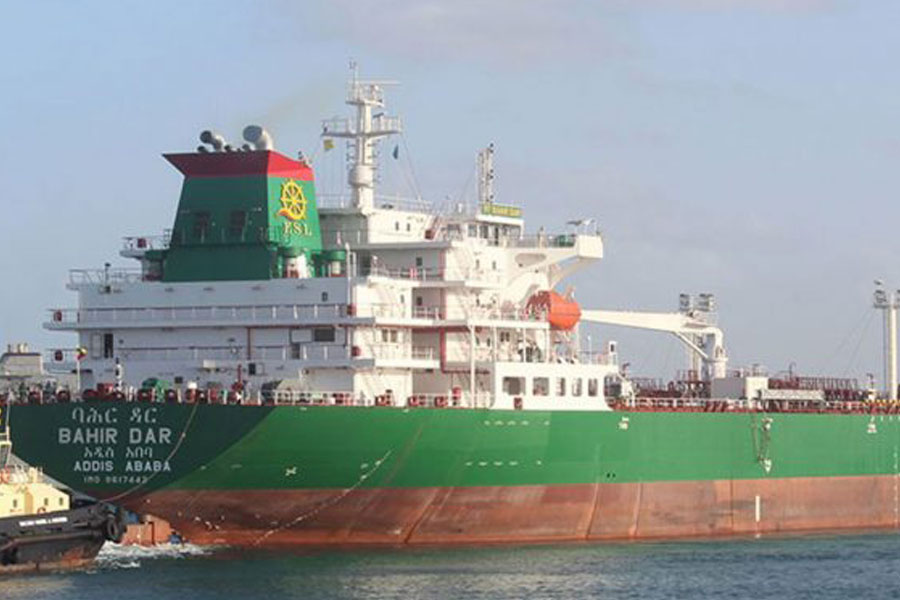
Fortune News | Oct 09,2021
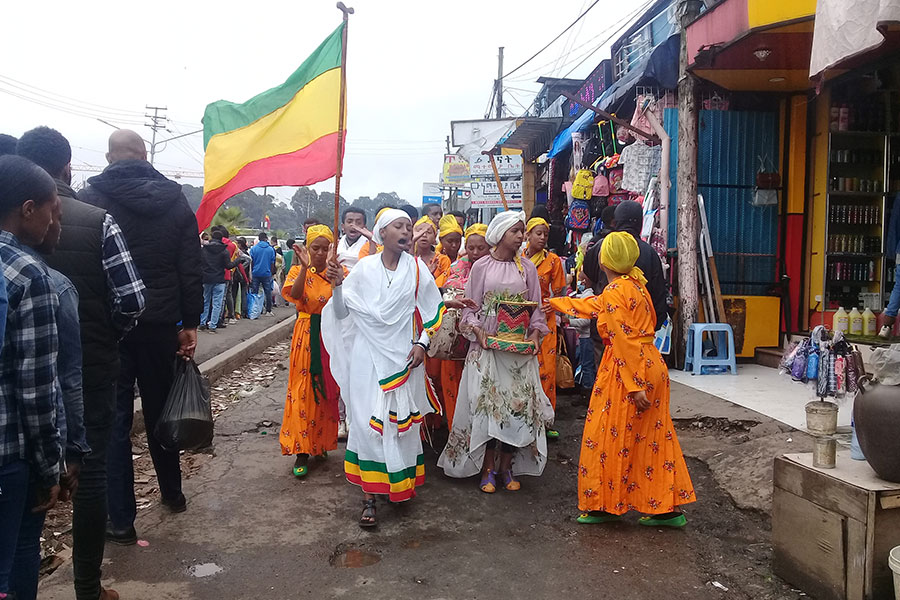
Radar | Sep 10,2021

Radar | Aug 28,2021

Advertorials | Sep 05,2024

Fortune News | May 02,2020

Commentaries | Jan 13,2024

Photo Gallery | 178188 Views | May 06,2019

Photo Gallery | 168399 Views | Apr 26,2019

Photo Gallery | 159169 Views | Oct 06,2021

My Opinion | 137055 Views | Aug 14,2021

Dec 22 , 2024 . By TIZITA SHEWAFERAW
Charged with transforming colossal state-owned enterprises into modern and competitiv...

Aug 18 , 2024 . By AKSAH ITALO
Although predictable Yonas Zerihun's job in the ride-hailing service is not immune to...

Jul 28 , 2024 . By TIZITA SHEWAFERAW
Unhabitual, perhaps too many, Samuel Gebreyohannes, 38, used to occasionally enjoy a couple of beers at breakfast. However, he recently swit...

Jul 13 , 2024 . By AKSAH ITALO
Investors who rely on tractors, trucks, and field vehicles for commuting, transporting commodities, and f...

Oct 25 , 2025 . By YITBAREK GETACHEW
Officials of the Addis Abeba's Education Bureau have embarked on an ambitious experim...

Oct 26 , 2025 . By YITBAREK GETACHEW
The federal government is making a landmark shift in its investment incentive regime...

Oct 29 , 2025 . By NAHOM AYELE
The National Bank of Ethiopia (NBE) is preparing to issue a directive that will funda...

Oct 26 , 2025 . By SURAFEL MULUGETA
A community of booksellers shadowing the Ethiopian National Theatre has been jolted b...